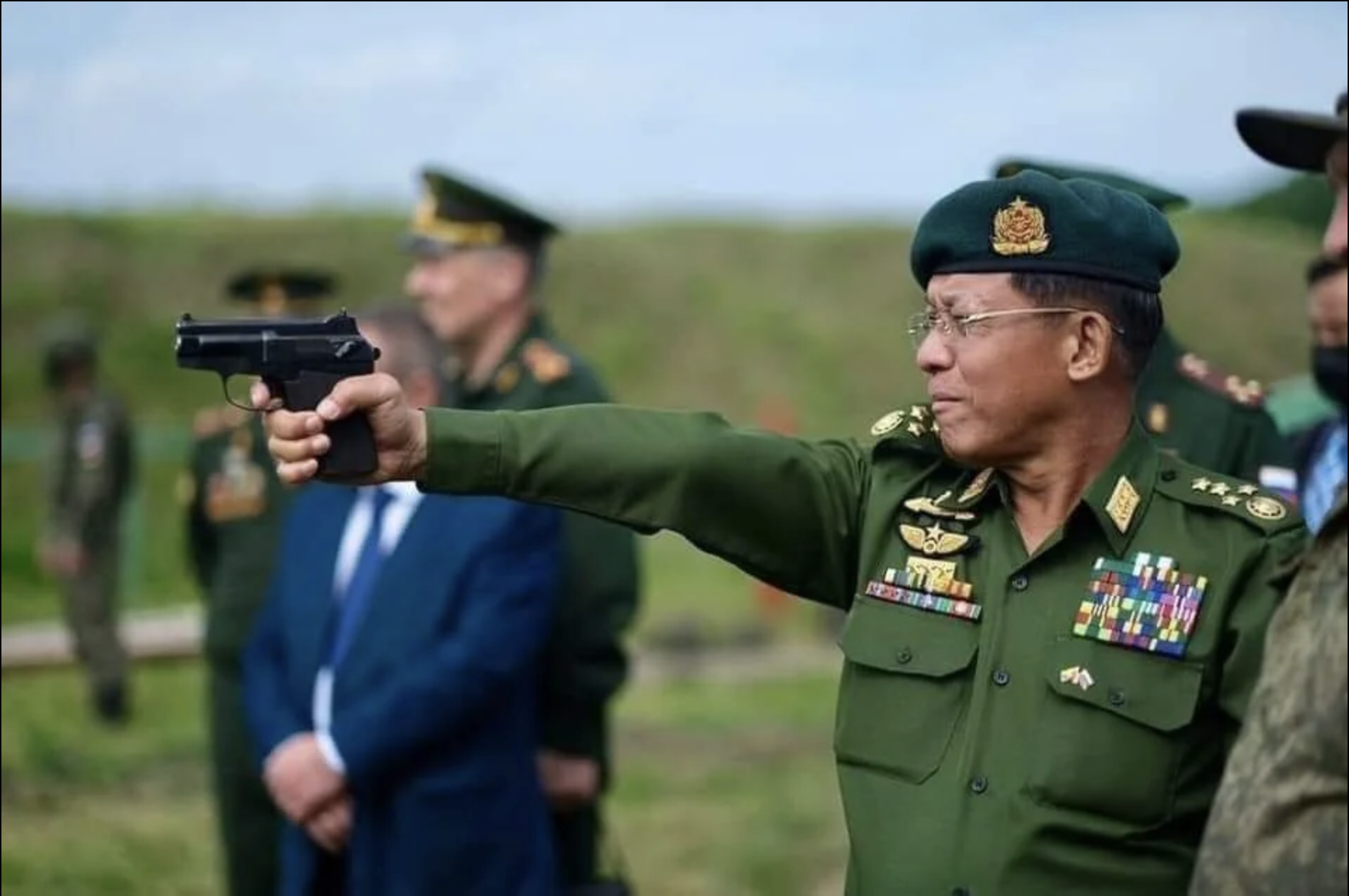
Myanmar’s military regime issued a policy allowing those “loyal to the state” to obtain firearm licences and permits, formally authorising the right to arms for junta allies including militia members, according to an unverified leaked directive.
The 15-page document from the military council’s home affairs ministry stated that it authorised the policy on January 31 based on a decision made during a December cabinet meeting. It outlined the types of firearms permitted and as well as the eligibility criteria for those applying for licences and permits, which have a one-year validity.
The move comes two years after the coup that overthrew Myanmar’s elected civilian government in February 2021. The junta faces a growing armed resistance movement led by decentralised defence groups nationwide operating independently or under the publicly mandated National Unity Government.
In the leaked document, the military’s home affairs ministry justified the new regulation as replacing an existing 1977 statute introduced under a previous regime headed by Gen Ne Win; the primary law regulating firearms licensing remains the 1878 Arms Act, which was enacted by the British colonial government.
“After an assessment, the [1977] policy on carrying firearms has been modified and supplemented as is required in order to be in line with the changing situation,” the ministry said.
Applicants hoping to obtain guns are divided into three categories under the new system: civilians, civil servants and army personnel. Those seeking firearms must be 18 years old or older and “cannot be mentally unsound.” They must have no record of being convicted of crimes related to local and state security violations, and must also be determined to be “loyal to the state,” according to the document.
It added that they need to demonstrate that they have a proven need for a gun for “personal security” reasons.
Civilians are asked to procure recommendations from village or ward administrators and police stations—all part of the junta’s local governance mechanism—and submit their applications for firearm ownership to the township-level police force.
When ordered to do so by the junta authorities, those with licenced guns are tasked with carrying out activities related to “security, law enforcement, and stability” as well as “crime prevention measures,” according to the document. The home affairs ministry also authorises these individuals to take action if and when they witness the “destruction” of state property.
It also gives the home affairs ministry permission to import firearms to sell domestically, overseen by the defence ministry. It was unclear from the leaked information whether private companies would be permitted to participate in this process.
The junta’s firearm licences will allow for the possession of up to three of the following: revolvers up to .38 caliber in size, as well as pistols up to 9mm, hunting and air rifles, and 12-gauge shotguns and smaller. Fully automatic firearms are prohibited in this category, the home affairs ministry’s document said.
Permits authorise the ownership of one pistol larger than 9mm, a rifle or submachine gun. These arms must be registered at township-level police stations as state-owned weapons and only “legally formed security forces, counter-insurgency groups and militias” are eligible to use these weapons, the order said.
The military’s home affairs ministry will determine the number of firearms to be allocated to the regime’s security forces, and the defence ministry will do so for the counter-insurgency groups and militias, according to the document.
Retired army personnel will need to seek recommendations from the military’s defence ministry and the office of the army commander-in-chief to apply for licences and permits that would allow them to continue to carry the guns they were issued during their service.
The move has been seen as a justification for the junta, led by Min Aung Hlaing, to release arms to those loyal to him in support of his claim to power. Facing declining troop numbers and stunted recruitment efforts, the military has formed, trained and armed its own militias, known as the Pyu Saw Htee. The groups, made up of individuals loyal to the Myanmar army, have been called on to operate in resistance strongholds such as Sagaing and Magway regions.
Junta administrators and suspected informants have been routinely targeted in deadly attacks by resistance forces for collaborating with the military or supporting its administrative mechanism. Supporters of the regime took to social media welcoming the new weapons policy and claiming that it would make it easier for “people’s militias”—the official name provided by the military council—to access arms to defend themselves.
Military spokesperson Zaw Min Tun told BBC Burmese on Sunday that the regulation was adopted because there were “requests by the people for their self-defence,” referring to junta personnel and collaborators in danger of being singled out in assassination attempts by guerrilla forces.
While no information was provided on licensing fees, Zaw Min Tun only commented that these costs would be “affordable,” and that the responsibility for distributing arms might be allocated to an official “security committee” in the future.



